Auction Law in Belgium
The legal information presented in these pages offers some insight into the law in different jurisdictions but should not be acted upon without having consulted your own legal advisor.
A dealer who buys from a Belgian auction house generally can return a fake, but it depends on the specific auction house's terms and conditions and how the item was described.
Here are the key factors:
1. Auction House Terms
Reputable auction houses in Belgium (and the EU generally) usually offer some guarantees of authenticity, especially if the item was described as genuine. If it's proven to be fake, you may be entitled to a refund or the ability to return the item.
2. Description and Misrepresentation
If the item was sold as "authentic" or under a clear attribution, and it turns out to be fake, that’s grounds for a return. However, if it was sold “as is”, “in the style of,” or “attributed to,” that gives them legal wiggle room.
3. Time Limits
There is often a limited period to dispute authenticity—commonly 14 to 30 days after the sale, sometimes longer. You must act quickly once the forgery is discovered.
4. Proof and Expert Opinion
You may need to provide expert verification or documentation proving the item is not authentic. A professional appraisal or lab test might be required.
5. Consumer vs. Dealer Protections
Dealers may have less consumer protection than private individuals under Belgian and EU consumer laws. However, contractual rights still apply.
Would you like help finding the return policy of a specific Belgian auction house?
Under Belgian law, incorrectly describing an item in an auction room can lead to civil and, in some circumstances, criminal liability, depending on the nature of the misrepresentation.
1. Civil vs. Criminal Misrepresentation
Civil Liability (most common)
If an auction house describes an item incorrectly — for example, attributing a painting to the wrong artist or misstating the material — this typically falls under civil law, particularly:
- Contractual liability: The buyer may claim the item does not match the contract terms.
- Error (Erreur / Dwaling): If the buyer was misled, the sale can potentially be annulled.
- Misrepresentation (Dol / Bedrog): If the incorrect description was intentional or grossly negligent, the buyer can seek annulment and possibly damages.
Criminal Liability
If the misdescription involves intentional deception, it could constitute fraud (escroquerie) under the Belgian Penal Code (Article 496). For this to apply, the following must be proven:
- There was intent to deceive (not just an honest mistake).
- The deception induced someone to give up money or property.
- There was a clear personal gain for the deceiver.
2. Professional Standards
Auction houses are held to professional standards and may be liable under consumer protection laws if they mislead buyers — especially if they are dealing with private (non-professional) individuals.
3. Example Scenarios
- Incorrect description due to negligence: Likely civil liability (refund or damages).
- Deliberate false attribution to inflate value: Potential criminal liability.
- Mistake promptly corrected during preview or before bidding: May reduce or eliminate liability.
